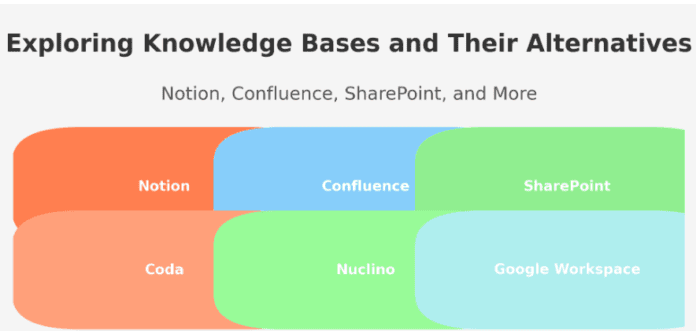Last Updated on January 23, 2026 by Rida Gul
A knowledge base is a centralized repository that stores information and data about a particular subject or organization. It is designed to facilitate the storage, retrieval, and management of knowledge, making it easily accessible to those who need it. Knowledge bases can be used for a variety of purposes, including customer support, internal documentation, product information, and much more. They are essential tools for businesses and organizations seeking to improve efficiency, streamline operations, and enhance communication.
Table of Contents
The Importance of Knowledge Bases
Streamlining Information Management
Knowledge bases provide a structured way to manage information, ensuring that it is organized and easy to find. This can significantly reduce the time employees spend searching for information, allowing them to focus on more productive tasks.
Enhancing Customer Support
For businesses, a well-maintained knowledge base can be a crucial component of customer support. It allows customers to find answers to their questions quickly and efficiently, reducing the need for direct support and improving customer satisfaction.
Facilitating Collaboration
In a collaborative environment, a knowledge base can serve as a central hub where team members can share information, document processes, and track progress. This can improve communication and ensure that everyone is on the same page.
Alternatives to Traditional Knowledge Bases
While traditional knowledge bases have their merits, there are several modern alternatives that offer additional features and functionalities. Two popular categories of alternatives include Notion alternatives and Confluence alternatives.
Notion Alternatives
Notion is a versatile tool that combines note-taking, project management, and knowledge management into one platform. However, it may not be the perfect fit for everyone. Here are some notable Notion alternatives:
ClickUp
ClickUp is a comprehensive productivity platform that offers features for task management, document collaboration, and goal tracking. Its robust customization options make it a strong contender for those looking for a Notion alternative.
Evernote
Evernote is a well-known note-taking app that also provides capabilities for organizing and managing knowledge. Its simplicity and ease of use make it an attractive option for individuals and small teams.
Coda
Coda combines the functionality of documents and spreadsheets, allowing users to create powerful, interactive documents. It is particularly useful for teams that need to integrate data from various sources and create dynamic workflows.
Microsoft OneNote
Microsoft OneNote is a digital note-taking app that integrates seamlessly with other Microsoft Office products. It is ideal for users who are already embedded in the Microsoft ecosystem and need a tool for capturing and organizing information.
Confluence Alternatives
Confluence, developed by Atlassian, is a widely used collaboration tool for creating, sharing, and managing content. However, there are several Confluence alternatives that offer unique features and benefits:
Slab
Slab is designed specifically for knowledge sharing and team documentation. It provides a clean and intuitive interface, making it easy for teams to create and maintain their knowledge base.
Guru
Guru is a knowledge management solution that integrates with various tools and platforms, providing real-time access to information. It is particularly useful for customer support and sales teams that need quick access to knowledge.
Document360
Document360 is a knowledge base software that allows organizations to create both public and private knowledge bases. Its powerful search capabilities and customizable design make it a great option for companies of all sizes.
Zoho Wiki
Zoho Wiki is part of the Zoho suite of productivity tools. It offers a simple and effective way to create and manage knowledge bases, with features like access controls and version history.
Choosing the Right Knowledge Base Solution
When selecting a knowledge base solution, it is important to consider your specific needs and requirements. Factors such as ease of use, integration capabilities, customization options, and pricing should all be taken into account. By evaluating the various alternatives available, you can find a solution that best fits your organization’s needs and enhances your overall knowledge management strategy.
Conclusion
Knowledge bases are essential tools for managing information and facilitating collaboration. While traditional options like Notion and Confluence are popular, there are numerous alternatives available that offer unique features and benefits. By exploring these alternatives, organizations can find the right solution to meet their specific needs and enhance their knowledge management practices.
















